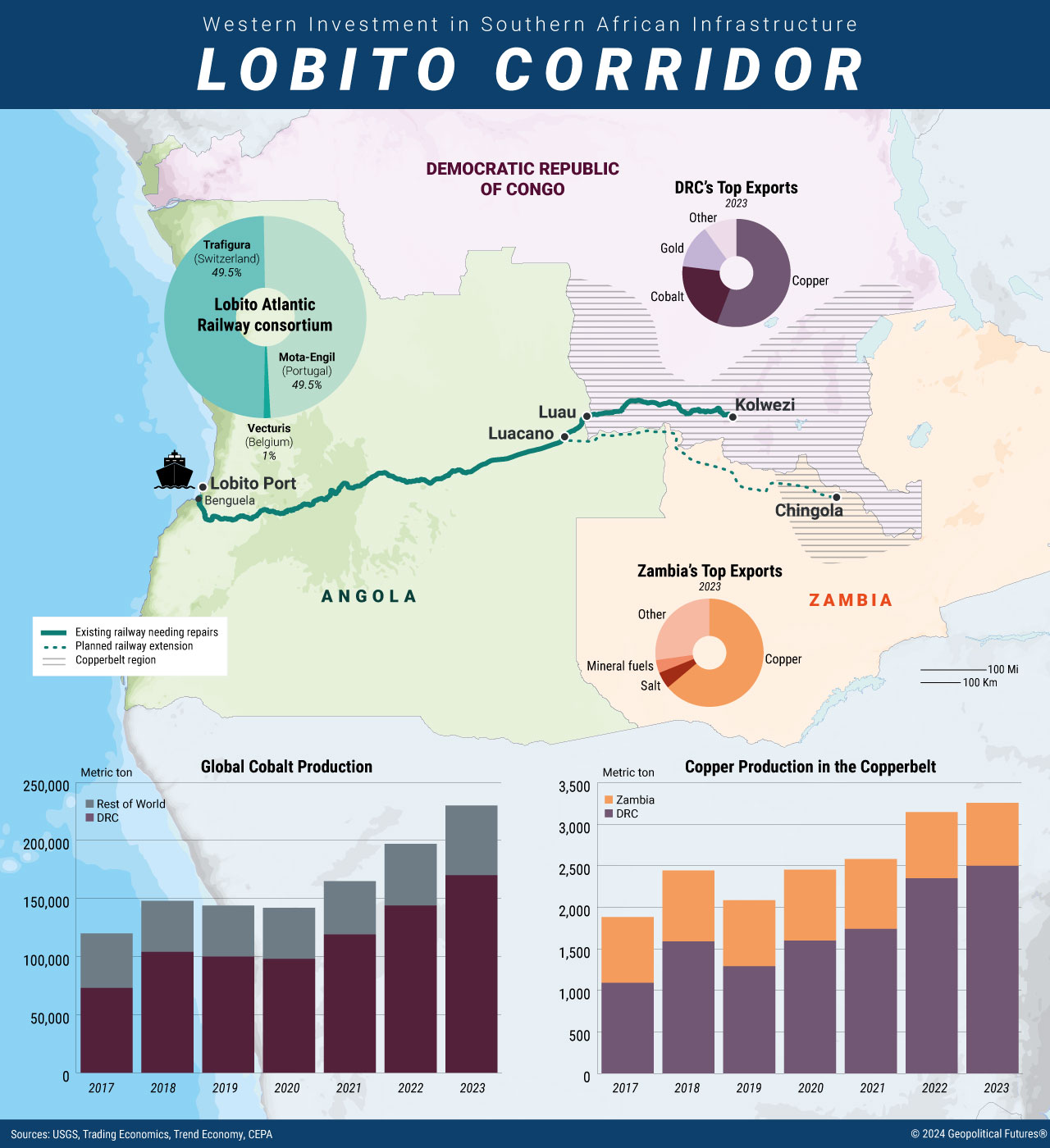The Lobito Corridor is a planned 1,850-km (1,150-mile) railway connecting the Democratic Republic of Congo to the Atlantic Ocean via Angola’s Port of Lobito, with an additional 500 km extension linking Zambia to the main route. Announced in September 2023, this $1.7 billion project is a partnership involving the EU, the U.S., African countries, the African Development Bank and other stakeholders. The corridor aims to connect some of the world’s richest cobalt and copper mining areas to global markets through the Atlantic, enhancing trade opportunities with the EU and U.S. These minerals, essential for electric vehicles and battery production, are central to the EU and U.S. strategy to build resilient supply chains, though China currently dominates in securing these resources and producing batteries. In the DRC, for example, Chinese companies control 80 percent of cobalt production, exporting it mainly via the east coast and Indian Ocean.Zambia, the DRC and Angola anticipate reduced export costs, better global market access and stronger regional trade through this project. However, the corridor remains in its early stages. The pre-feasibility study for the Zambia-Lobito segment began in September 2022, and the project’s success hinges on financing. Still, the initiative underscores the rising strategic importance of securing critical minerals. The EU and U.S. have already committed substantial investments and will be the main lenders alongside the African Development Bank and Africa Finance Corp. A recent memorandum of understanding signed by seven stakeholders marks the start of preparatory work for what could become a cross-continental railway linking Africa’s east and west coasts, potentially delivering significant economic benefits to the region.
Africa’s Copperbelt and the Atlantic
August 26th, 2024
August 26th, 2024
Via Geopolitical Futures, a quick summary of the Lobito Corridor, whose success depends on financing:
This entry was posted on Monday, August 26th, 2024 at 5:47 am and is filed under Angola, Democratic Republic of Congo, Zambia. You can follow any responses to this entry through the RSS 2.0 feed.
Both comments and pings are currently closed.
ABOUT
Focusing primarily on The New Seven Sisters - the largely state owned petroleum companies from the emerging world that have become key players in the oil & gas industry as identified by Carola Hoyos, Chief Energy Correspondent for The Financial Times - but spanning other nascent opportunities around the globe that may hold potential in the years ahead, Wildcats & Black Sheep is a place for the adventurous to contemplate & evaluate the emerging markets of tomorrow.

